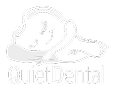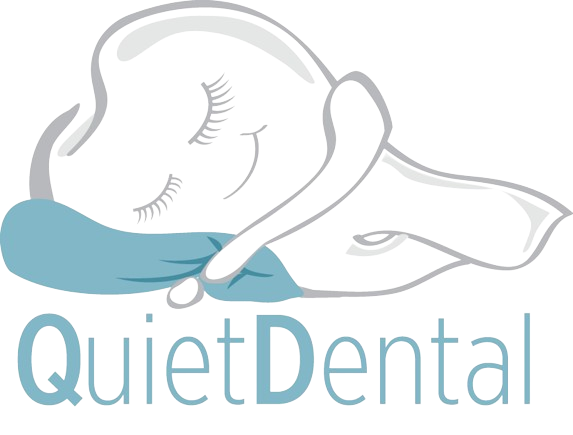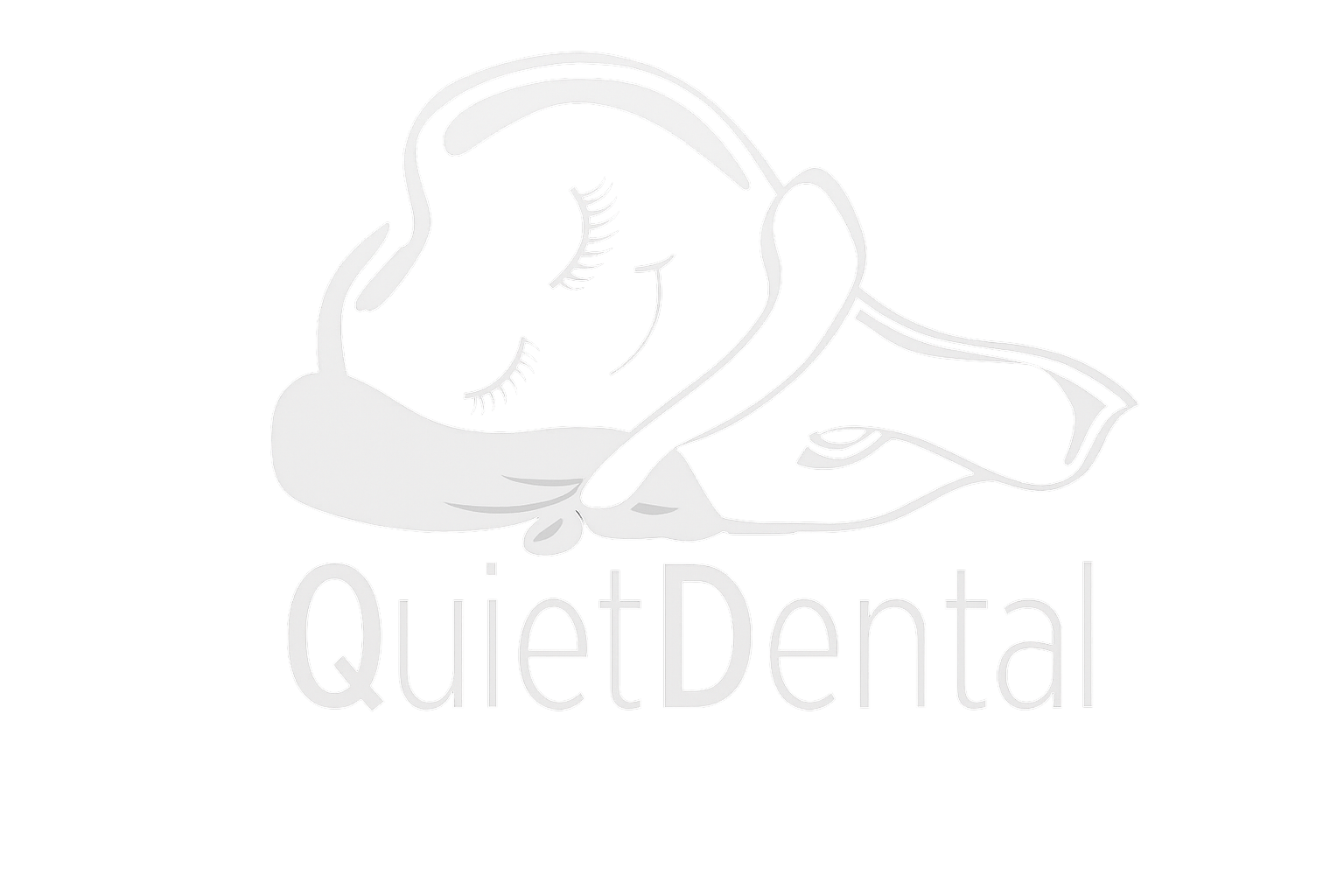8 min read
The Shocking Link Between Poor Sleep and Your Health — And How to Fix It Tonight

Key Highlights
- Getting enough sleep is a must for your body. It gives many good benefits to your health, both in the body and mind.
- If you do not get enough sleep over a long time, it can raise your chance of facing serious health problems. This can include high blood pressure and heart disease.
- The quality of your sleep has a direct effect on your immune system, how your brain works, and your mood.
- Sleep problems, such as sleep apnea, are often related to your mouth health. Your dentist may be able to spot signs of these sleep issues.
- Working on your sleep habits and your sleep space is an important part of keeping better control over disease and helping you feel well all around.
- Adults need to get the recommended amount of sleep for their best health. That is usually 7-9 hours each night.
Introduction
Does it feel like the pace of life in the Bronx keeps you from getting a good night’s sleep? You are not the only one. A lot of people wake up and feel like they never got any sleep at all. But those mornings when you feel tired may mean something more serious is going on. A lack of sleep, especially if it happens over time, can have a big effect on your health. Putting your hours of sleep first is not just a luxury. It is as important for your well-being as eating right and getting enough exercise.
The Science Behind Quality Sleep and Its Health Benefits
You may think that sleep is simply “down time,” but your brain and body keep working while you rest. Healthy sleep means more than the total amount of sleep you get. It is also about sleep quality, like having good, refreshing rest without being interrupted. A steady sleep schedule is important, too. Most adults need at least seven hours every night. This helps them feel their best and get all the benefits of sleep.
When the right things are there, your body is able to fix itself and keep working well. We will talk about what your body does when you sleep. You will also see why deep sleep that helps you feel better is very important for your health.
Why Sleep Is Important for Your Health: Essential Functions Explained
When you sleep, your brain does not shut down. It works to clean itself. The brain has a drainage system that gets rid of toxins. These are bad things, like some proteins tied to Alzheimer’s disease. Cleaning happens twice as quick during sleep than when you are awake. This shows how getting enough sleep is really important for people.
This healing time at night helps more than just your brain. Your whole body uses sleep to fix itself. Dr. Kenneth Wright, Jr., who studies sleep at the University of Colorado, says, “There are some repair jobs in the body that happen mostly, or best, during sleep.”
When you get quality sleep, your blood vessels and your immune system can heal and get stronger. If you don’t sleep well, your body cannot fix itself the way it should. This can make you feel tired, and you can be more likely to get sick over time. Quality sleep is important for your immune system and the health of your blood vessels.
The Importance of Deep Sleep and Restful Night Cycles
You do not sleep in one steady way all night. You go through several stages like non-REM sleep and REM sleep. Both deep sleep and REM sleep help you feel well-rested and are good for your body. Deep sleep is the time when your body fixes and heals itself the most.
During this time, your body makes new cells, builds muscle, and fixes hurt tissues. Deep sleep is also when your blood sugar levels get lower. This helps your body reset and feel better. If you do not get enough deep sleep, it can mess with your metabolism and your immune system.
REM sleep, on the other hand, is important for your mind. This is the time when your brain makes sense of what happened, stores memories, and works through feelings. A healthy sleep cycle, with enough deep and REM sleep, helps you wake up feeling your best.
- Be mentally sharp and feel focused.
- You feel emotionally balanced.
- Your body is refreshed and ready for the day.
How Poor Sleep Affects Your Body and Mind
Not getting enough sleep does a lot more than just leave you tired the next day. A lack of sleep or sleep deprivation can really hurt how your brain works. It also has a big impact on your mental health and affects your body in other ways. If you keep missing sleep for a long time, you might get problems like high blood pressure or heart disease. This can even lead to obesity or dementia over time. Our brains and bodies need plenty of sleep to feel good and to work well every day.
When you do not get enough rest, the body cannot fix itself the way it should. A weak immune system can lead to feeling tired, and your mind may not feel sharp. Poor sleep makes it hard for the brain to work at its best and keeps the body from staying strong. Next, we will look at how poor sleep can hurt both the mind and the body.
Impact on Brain Function, Memory, and Mental Wellness
Ever feel like it’s tough to focus after you get too little sleep? That is because sleep deprivation can mess with your brain function. If you do not rest enough, your brain finds it hard to keep your attention on things, learn new stuff, and remember what happens. This can make you do less well at work or school. It can also make your judgment not as good.
Your mental wellness is linked to the hours of sleep you get each night. When you sleep, your mind works through feelings. If you do not get enough rest, you may feel more irritable. This can also make you feel anxious. It might cause you to react in a negative way. Studies show that people who have trouble sleeping are five times more likely to feel sad or down.
Good sleep helps your mind work better. It also helps you feel strong when life gets hard. When you get good sleep, you can think more clearly. You also feel better about the day ahead.
Impact of Poor SleepHealth Risk
How Good Sleep Helps
Difficulty focusing and learning
Enhances concentration and information intake
Poor memory recall
Consolidates memories for later access
Increased negative emotions
Processes emotions, improving your mood
Effects on Immune System, Heart Health, and Weight Management
Your immune system needs enough sleep to work well. A lack of sleep can make your immune system weaker. When you do not get enough rest, your immune cells move more slowly and do not fight off harmful bacteria and viruses like they should. This means you might get sick more often, and it can take longer for you to feel better.
Poor sleep is not good for your heart. When you get the recommended amount of sleep, your blood pressure goes down. This rest time helps your heart and blood vessels. But if you have poor sleep, your blood pressure stays up for longer. This can make you more likely to get heart disease or have a stroke. You need good sleep for your blood vessels and heart to work well.
Are you finding it hard to manage your weight? The reason could be your sleep habits. Sleep deprivation makes changes to the hormones in your body that help control when you feel hungry. You might feel more hungry and eat more foods that are not good for you. When you do not get enough sleep, you can feel too tired to exercise as well. This mix can lead to weight gain.
The Overlooked Connection Between Sleep and Oral Health
You may not know this, but your dentist can be one of the first people to notice signs of a sleep disorder. A condition like sleep apnea, that can make you snore loudly, can show up in your mouth. A lot of people do not even know they have a sleep disorder like this. It is good to have your dentist look for these things during your visits.
Because you visit your dentist often, they can see the signs of sleep problems in your mouth. Noticing these signs early can help you get a checkup and find the right treatment. This may make your sleep better and also help your life in many other ways.
Sleep Apnea, Snoring, and Dental Signs to Watch For
Sleep apnea is a sleep disorder that many people have. In this condition, your breathing stops and starts several times during the night. This happens because the airway is blocked, so air can’t move in and out easily. It makes you wake up often, even if you may not remember it. Loud snoring that doesn’t go away is a big warning sign of sleep apnea, but there are other things to look out for too.
Your dentist or he might notice some things during a normal visit. These signs in your mouth can show you may have a sleep disorder. You may not even know about it. A sleep diary can help you and your doctor see patterns and signs of the problem.
Look out for these common indicators:
- Teeth Grinding (Bruxism): A lot of people who have sleep apnea grind or clench their teeth when they sleep. This happens as the body tries to open the airway again.
- Worn-Down Teeth: Grinding your teeth too much can cause them to be flat, break, or chip.
- A Scalloped Tongue: The tongue might have marks on the sides because it gets pushed up against the teeth.
How Bronx Dentists Can Help Improve Sleep Quality
If you have trouble with snoring or think you might have sleep apnea, your Bronx dentist can help you improve your sleep quality. At Quiet Dental, we know how to look for signs of sleep-disordered breathing and work with a sleep specialist. This way, you get the right diagnosis and care for your needs.
For many people who have sleep apnea and find it mild or not too strong, an oral device made just for them can help a lot. This tool looks like a mouthguard. You wear it while you sleep. It helps by moving your jaw forward a bit.
This small change helps keep your airway open. That lets you breathe in and out all night without a problem. You can get the deep sleep you need to feel good again. By fixing the sleep disorder, oral appliance therapy for sleep apnea can lower snoring and help your energy. You may also feel better, and it can be good for your dental health.
Simple Steps to Achieve Better Sleep Quality Tonight
If you feel upset about not getting enough hours of sleep, you should know that you don’t always need medicine for help. Doing small changes in your daily habits and bedtime routine can make it much better for you to get a good night’s rest. Keeping a regular sleep schedule and making your environment feel calm both help a lot.
If you pay attention to good sleep habits, you can help your body fall asleep better and feel fresher when you wake up. So, let’s look at some easy tips you can use tonight that help support healthy sleep.
Tips for Healthy Sleep Habits and Creating a Restful Routine
Creating a restful routine tells your brain that it is time to slow down. This helps control your body clock, also called the circadian rhythm. To get healthy sleep, it is important to keep to the same sleep habits every night. A steady routine is key for a good night’s sleep.
Start by making your bedroom good for sleep. Keep the room cool at night. Block out any light with blackout curtains or use an eye mask. Use earplugs or a white noise machine to help cut down on any noise. This nightly rest is important for your physical health and how you feel the next day. Good sleep helps you feel better and work better. For more ideas, check out the National Institutes of Health’s Guide to Healthy Sleep.
Incorporate these tips into your bedtime routine:
- Stick to a Schedule: Go to bed and get up at the same time every day. Try to keep this routine even on weekends.
- Avoid Stimulants: Stay away from coffee, nicotine, and big meals right before you go to sleep.
- Power Down Electronics: Turn off phones, tablets, and computers at least a half hour before sleeping. The blue light from these screens can make it hard to fall asleep.
Conclusion
To sum up, making sleep a priority is very important for your health and well-being. Getting good rest does more than help you feel awake. It helps brain function. It supports heart health. It also helps take care of your oral hygiene. Knowing how sleep is linked to many health factors be helpful to improve your sleep quality. If you have poor sleep or problems like snoring, don’t wait to get help. Set up a visit at Quiet Dental in the Bronx now. Take the first step to feel better and get more rest!
Tagged Better sleep habits, Sleep health, Sleep hygiene



